Great UPC Expectations: voices from the market
On 1 June 2023, the Unified Patent Court opened its doors. With the new system currently serving 17 ratified member states, with the potential to expand its remit even further, how the patent market receives the UPC is fundamental to its success. To that end, JUVE Patent has sourced various voices from across Europe, asking questions on three main topics: their UPC wishes, their expectations for potential challenges, and any personal associations with the UPC.
2 June 2023 by Amy Sandys
Thomas Adam (Germany)
Munich-based patent litigation partner at Peterreins Schley frequently shares his UPC views on social media
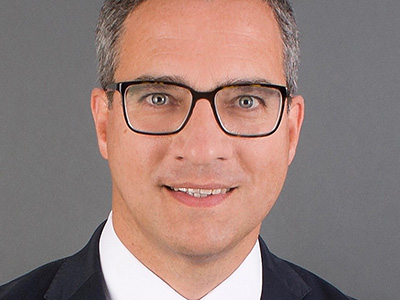
Thomas Adam
On 1 June, the Unified Patent Court will launch after an extremely turbulent history. What do you wish for the UPC?
“A good start, a hands-on and measured approach considering the realities of markets, a sensible approach to inventive step that does not turn patent offices’ work on its head, a pragmatic cooperation with, and successful inclusion of, technical judges.”
The new court will evolve over time. There are still many challenges for the judges in the first few months. What should they pay particular attention to?
“The court should be able to reassess established canons and seize the chance to re-think some of them; it should aim at achieving a healthy balance between challenging its customers (parties and representatives) with the objective of reaching a judgment quickly and providing a service. The need to develop its own personality notwithstanding, hopefully enough cases are up for appeal quickly, so the court can provide reliable guidelines in some trickier areas.”
The new court is also an important event for the people who will use it. What do you personally associate with the launch of the UPC?
“I am happy to work in an even more international environment than in the past and to meet – and take on – esteemed colleagues from across Europe. I am looking forward to litigating cases on the highest level, and to contributing to making Europe an even more attractive forum for the resolution of global disputes.”
Denise Benz
Newly appointed partner in the patent team of Allen & Overy (Germany)
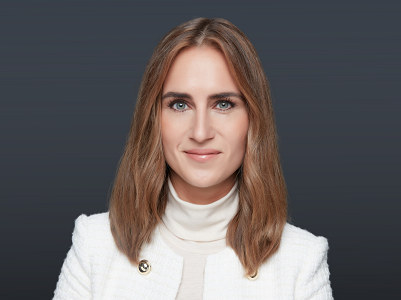
Denise Benz
On 1 June, the Unified Patent Court will launch after an extremely turbulent history. What do you wish for the UPC?
“I wish for the UPC to become another globally recognised jurisdiction for patent disputes, in addition to the already established locations.”
The new court will evolve over time. There are still many challenges for the judges in the first few months. What should they pay particular attention to?
“Striking a balance between enriching the UPC with their experience and expertise from the national judiciary, and at the same time being open and eager to create a new and forward-looking court system.”
The new court is also an important event for the people who will use it. What do you personally associate with the launch of the UPC?
“I associate the launch of the UPC with the opportunity to work even more closely with my highly esteemed continental European and global colleagues. We can challenge cases for our clients and participate as a party representative in the shaping of a new court system.”
Pauline Debré
Linklaters head of IP/TMT practice in Paris with expertise in cross-border litigation (France)
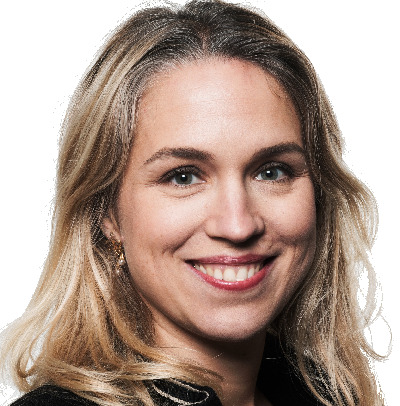
Pauline Debré
On 1 June, the Unified Patent Court will be launched after an extremely troubled history. What are your wishes for the UPC?
“It is a fantastic achievement and it will be a game changer in the global patent dispute landscape. I wish the UPC a long and successful life.”
The new court will be developing as it goes along. There are still many challenges for the judges in the first months. What should they pay particular attention to?
“Harmonisation and consistency will be key for the judges. We will need to ensure that there is no internal competition between the courts. At the same time, while applying the same rules in a consistent manner, judges must depart from their national habits and take the best out of national patent proceedings.”
“The mixing of different European cultures will be one of the greatest assets of this jurisdiction. For example, the saisie-contrefaçon is an effective tool under French law. The judges of the various local divisions should use the “UPC style” saisie with reference to the best practices of the French courts.”
The new court is also an important event for the people who will use it. What do you personally associate with the start of the UPC?
“I heard about the UPC since the first day I became a lawyer, 20 years ago, and have always been supportive of this project. I was part of the team of patent lawyers who reviewed many versions of the Rules of Procedure, and was selected for the recent mock trial in Paris with real UPC judges. It is finally launched and, as a European patent litigator, I feel very proud and enthusiastic.”
Hugh Goodfellow
Partner and patent attorney, Carpmaels & Ransford (UK)
On 1 June, the Unified Patent Court will be launched after an extremely troubled history. What are your wishes for the UPC?

Hugh Goodfellow
“I wish the UPC every success. Every indication from our clients is that the court will prove a useful and popular forum for resolving patent disputes, and my hopes are that the UPC will achieve the objectives that were the original reasons for it coming into being. Namely, providing a fast and cost-effective way of resolving patent issues across Europe, with a reputation for quality and fairness which only a specialist tribunal can provide.”
The new court will be developing as it goes along. There are still many challenges for the judges in the first months. What should they pay particular attention to?
“The UPC judges have been selected due to their experience in the patent profession, and I think it is a profession that very much wants the UPC to succeed. This means judges should have the confidence to issue decisions that provide clarity and guidance right from the start, in relation to the many procedural questions that will be asked of them. There is obviously uncertainty about how the new system will operate given that it contains many unfamiliar aspects. So, the sooner that parties and advisors are given strong, clear and – most importantly – consistent guidance on how the UPC will operate, the sooner we can concentrate on using the system to best resolve disputes.”
The new court is also an important event for the people who will use it. What do you personally associate with the start of the UPC?
“The UPC is the biggest change to the patent system in Europe since the EPC and creation of the EPO, so to be present during the next, once-in-a-generation, change to the system is extremely exciting at a personal level. To be part of that at the start, after many years of waiting, is both exhilarating and a privilege. As current managing partner, I am looking forward to doing my part to make the UPC a success and ensuring that Carpmaels helps shape the development of this new legal system for its clients, for many years to come.”
Clemens-August Heusch
Head of global litigation and disputes at Nokia (Germany)

Clemens-August Heusch
On 1 June, the Unified Patent Court will launch after an extremely turbulent history. What do you wish for the UPC?
“I hope that it will quickly establish itself as a reliable, balanced and competent court, so that in the hopefully not-too-distant future it will be joined by the other contracting states, and eventually by Spain, Poland and Croatia.”
The new court will evolve over time. There are still many challenges for the judges in the first few months. What should they pay particular attention to?
“Judges should ensure that procedural intricacies are appropriately resolved without losing sight of the big picture and without delaying pending proceedings.”
The new court is also an important event for the people who will use it. What do you personally associate with the launch of the UPC?
“I associate the launch of the UPC with the end of a long and difficult road, during which those responsible never lost sight of the goal despite many setbacks, such as constitutional complaints, Brexit, and IT problems, and brought the project to completion with patience and skill. I am happy that it is now getting underway.”
Laura Orlando
Partner, joint global head of Herbert Smith Freehills’ IP practice and co-head of the European LS sector team (Milan)

Laura Orlando
On 1 June, the Unified Patent Court will be launched after an extremely troubled history. What are your wishes for the UPC?
“My hopes are that the UPC will provide an efficient and predictable service to patent stakeholders, streamlining their European patent litigation experience. My concerns are that this will take some time to establish, and that in the interim there will be significant delays to the progression of cases caused by jurisdictional wrangling, interpretation issues and references to the CJEU.”
“Once the UPC’s approach to the procedural elements are better understood and more predictable, I hope the new system will be widely used and appreciated.”
The new court will be developing as it goes along. There are still many challenges for the judges in the first months. What should they pay particular attention to?
“The rules on whether cases go to the local or central divisions of the court in the first instance are complex, including where separate revocation and infringement actions are commenced. Judges will need to make decisions on whether to bifurcate or stay proceedings. This will likely be a regular occurrence while parties try new strategies.”
“UPC procedure has been created from a combination of participating states, as well as UK procedure. There is no precedent for how to apply the rules and judges are likely to approach them with their own experience in mind. This could lead to variations in the approach of different local divisions, especially those with two local nationals on the panel.”
The new court is also an important event for the people who will use it. What do you personally associate with the start of the UPC?
“Personally, I celebrate the final arrival of the UPC, and confirmation that Milan will become the third seat of the central division. This is despite the UPC not yet clarifying the competencies, which certainly won’t be as broad as the former London competency. It has been a long period of uncertainty and there are bound to be some teething problems. But, now the UPC is finally here, businesses and lawyers alike need to support it in its early years and help make it a strong and well-respected forum.”
“My experience is that global clients are treating the UPC forum as an additional jurisdiction in their enforcement and defensive strategies.”
Tracey Roberts
Newest partner in Pinsent Masons’ London office (UK)
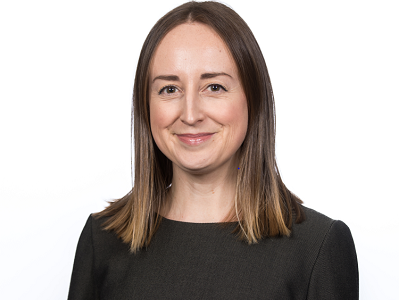
Tracey Roberts
On 1 June, the Unified Patent Court will be launched after an extremely troubled history. What are your wishes for the UPC?
“With the patents space typically driven by pharma and tech companies. I hope that both sectors will shape the new law as the UPC gets underway. But my wish is that this new court opens up the patent space to new sectors and new businesses as they begin to see the UPC as a forum to help them achieve their market goals at potentially lower costs and with less complexity”
“I also hope that the new court facilitates the creative use of these rights leading to more competition, more innovation, more opportunities. For those entering the market where a patent may block them, it gives scope to seek commercial certainty across numerous territories all at once, so they can plan their business activities accordingly.”
The new court will be developing as it goes along. There are still many challenges for the judges in the first months. What should they pay particular attention to?
“One key challenge is the potential for forum shopping under the structure of the UPC. Judges should be mindful of this in a few areas: firstly, when determining which court should hear proceedings. If a local court receives an infringement action, it should weigh up carefully whether to refer the whole case to a central division if a counterclaim for revocation is made.”
“If the local division determines to hear such a case, the second area to consider is what weight they give to different guiding legislation in the early days of the UPC when there is no precedent case law. The UPCA sets out that the court shall base its decisions on EU law, the UPCA itself, the EPC, other applicable international agreements, and national law. In countries with over 50 patent cases over the preceding three-year period, there will be two local judges in a panel of three. Here, the tendency to rely more on national law when determining cases should be weighed carefully, to ensure uniformity across the court and that divergence does not occur.”
The new court is also an important event for the people who will use it. What do you personally associate with the start of the UPC?
“I am fortunate to be part of a Europe-wide team where I can work on coordination of multi-jurisdictional patent litigation with my colleagues in the UK, France, Germany, the Netherlands and Ireland. Now, the challenge and opportunity is to bring that collegiate working model to bear at the UPC, and I’m excited to get started.”
Konstantin Schallmoser
Paris-based lawyer of German IP boutique Preu Bohlig & Partner (France)
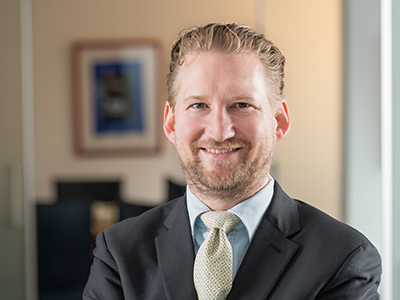
Konstantin Schallmoser
On 1 June, the Unified Patent Court will launch after an extremely turbulent history. What do you wish for the UPC?
“I would like to see the UPC become a genuine European project that can and should become a kind of beacon, both for the entire European civil justice system and for the European integration process.”
The new court will evolve over time. There are still many challenges for the judges in the first few months. What should they pay particular attention to?
“The most important thing is to develop a uniform approach for all local divisions from the outset. Right from the start, recourse to national case law should only serve to develop a new, uniform line of case law from the various national case laws.”
The new court is also an important event for the people who will use it. What do you personally associate with the launch of the UPC?
“Personally, I associate it with the founding of our office in Paris, many friendships with great colleagues from the Paris IP scene and, of course, the fact that my children are also growing up in Paris because of this project. They can absorb the best of two worlds.”
Ingve Stjerna
Düsseldorf-based lawyer and former claimant in the German constitutional challenge (Germany)
“The Unified Patent Court is the dream project of a select few who seek to maximise their profits on the premise of supposedly “promoting innovation”. This will primarily be to the detriment of small and medium-sized enterprises and thus the real drivers of innovation.”
“The UPC will serve as a prime example of how legislation should not be done. Contentwise, it is still the case that constitutional law requires a court to fulfil certain basic requirements under the rule of law. That the Unified Patent Court has many deficits in this respect is well known, as are the foreseeable consequences.
“The originally intended pioneering project has degenerated into an unprecedented farce, for which it is now even questionable whether it conforms at all to the specifically created legal foundations. Also in terms of the rule of law, the Unified Patent Court is an admission of failure; in the future, it will serve as a prime example of how legislation should not be done.”
Winfried Tilmann
Düsseldorf-based of counsel at Hogan Lovells and co-founder of the UPC Rules of Procedure (Germany)

Winfried Tilmann
On 1 June, the Unified Patent Court will launch after an extremely turbulent history. What do you wish for the UPC?
“That the court soon gains the trust of opt-out patent holders that the high quality of its judges deserves.”
The new court will evolve over time. There are still many challenges for the judges in the first few months. What should they pay particular attention to?
“Reliable quality of the CMS system, speedy case processing and trusting cooperation with the litigation representatives.”
The new court is also an important event for the people who will use it. What do you personally associate with the launch of the UPC?
“Gratitude for the fact that the long-awaited court is now up and running and can thus make a further contribution to the unity of Europe.”
Sophie van Asten
Allen & Overy associate is based in key UPC jurisdiction (the Netherlands)
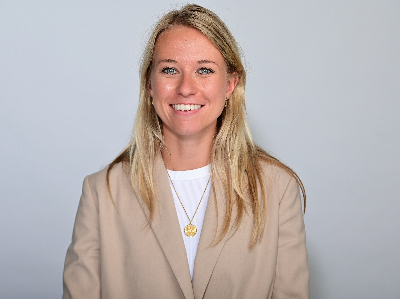
Sophie van Asten
On 1 June, the Unified Patent Court will be launched after an extremely troubled history. What are your wishes for the UPC?
“My wish for the UPC is to live up to its expectations, and to leave behind its historical long and troubled formation. The UPC has the potential to create a more uniform and predictable framework for the enforcement of patents across Europe, through a very competent, efficient and fast-acting body that ensures quality. I think the system is well-equipped to work, so hopefully the UPC will fulfil its promises.”
The new court will be developing as it goes along. There are still many challenges for the judges in the first months. What should they pay particular attention to?
“The Rules of Procedure establish a new uniform set of substantive and procedural rules which may differ from the national laws and practices that the UPC judges are familiar with. While there may be some more room for local flavours in the early stages of the UPC, hopefully issues that prove to be ambiguous will be quickly clarified by the UPC’s Court of Appeal, to foster harmonisation.”
The new court is also an important event for the people who will use it. What do you personally associate with the start of the UPC?
“As the UPC is a ‘new’ system, it will likely present challenges, but also opportunities to develop new strategies and shape new case law. In addition, I really enjoy the learning and exchange that comes from working in multi-jurisdictional teams, and the UPC will provide more occasions for this.”
Beat Weibel
Chief IP counsel at Siemens (Germany)

Beat Weibel
On 1 June, the Unified Patent Court will launch after an extremely turbulent history. What do you wish for the UPC?
“In the short term, a good start with as few IT problems as possible. In the long term, that the UPC becomes the leading patent court in Europe.”
The new court will evolve over time. There are still many challenges for the judges in the first few months. What should they pay particular attention to?
“One advantage is the short duration of the proceedings. It may not be possible to meet this at the beginning. Please do not compromise on quality because of deadline pressure. For industry, the quality of a decision comes before speed.”
The new court is also an important event for the people who will use it. What do you personally associate with the launch of the UPC?
“I am quite simply pleased that the unitary patent and the Unified Patent Court are finally becoming a fact, after all the talk of it at the beginning of my professional career in the 1990s.”
(Co-author: Mathieu Klos)
